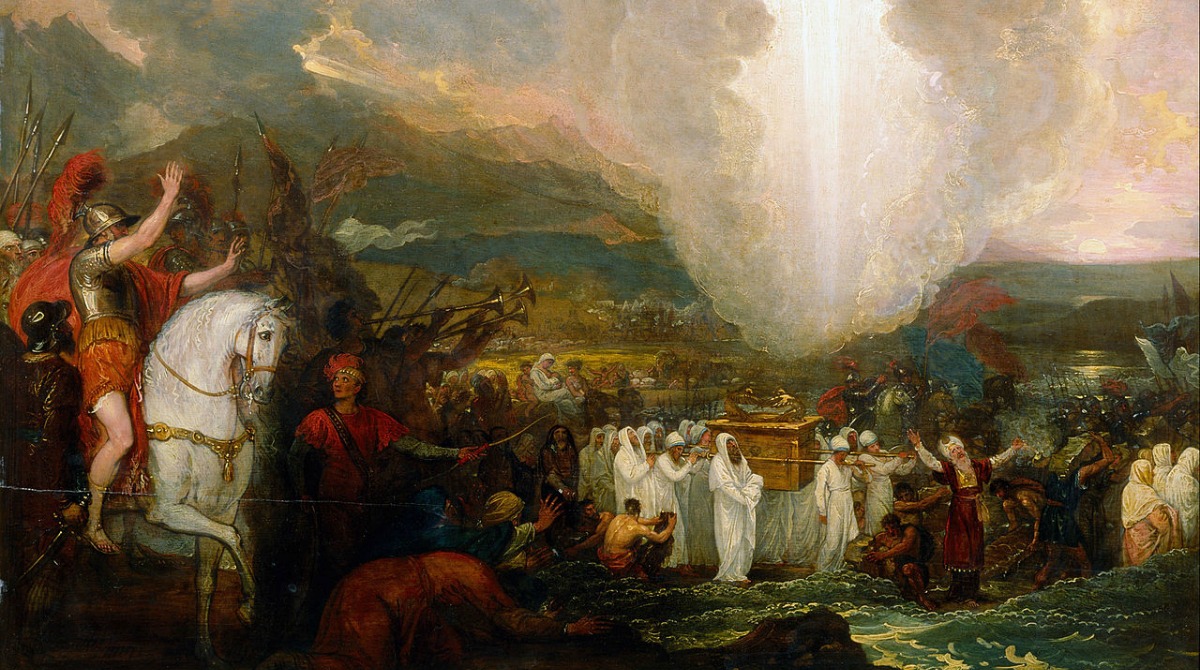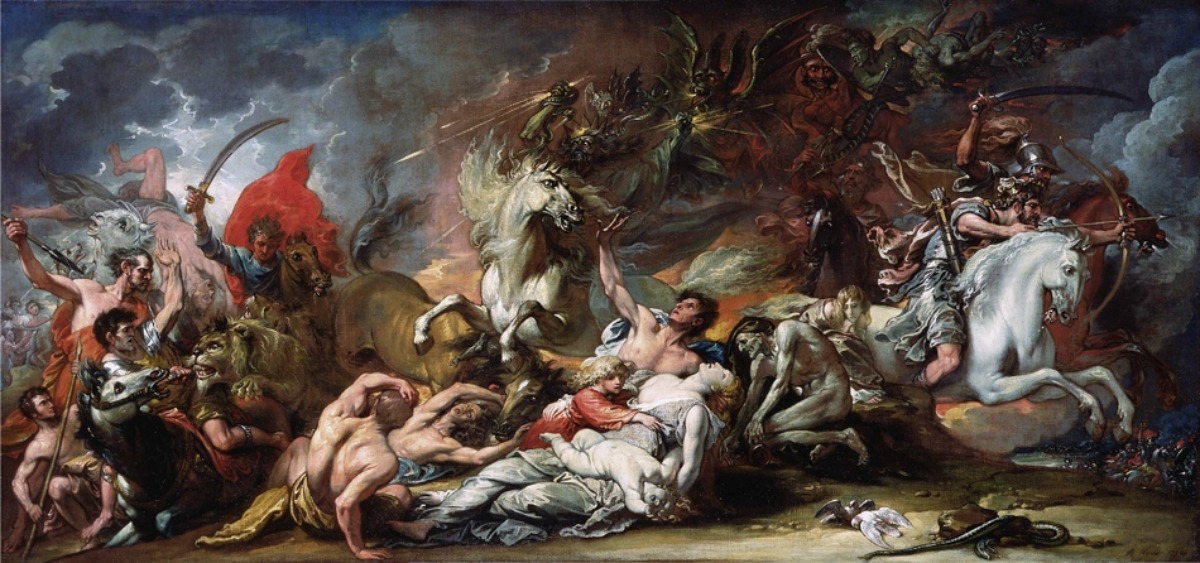Is the State of Israel supping with the devil?
The visit to Israel this week by Italian deputy prime minister Matteo Salvini has provoked criticism and dismay within the Jewish world.
Salvini, who heads Italy’s right-wing “populist” Lega party, is controversial because of his anti-immigration stance.
Israel’s President Reuven Rivlin declined to meet him, citing “scheduling issues.” Rivlin’s view of political parties such as Lega were made clear, however, when he told CNN that the whole world needed to work against xenophobia, discrimination and antisemitism.
“There are neo-fascist movements today that have considerable and very dangerous influence, and sometimes they also express their strong support for the State of Israel,” he said.
Israel’s prime minister, Benjamin Netanyahu, would seem to disagree. Indeed, he has gone out of his way to embrace leaders who, although some insist they are just conservative nationalists, are described by others as neo-fascists.
Among such politicians are Hungary’s prime minister Viktor Orbán, who has introduced what he calls an “illiberal democracy”; the Austrian chancellor, Sebastian Kurz, who heads a coalition including a party whose first two leaders were former SS officers; the Philippine president Rodrigo Duterte, who supports extra-judicial killing for drug-users and other criminals; and the new president of Brazil, Jair Bolsonaro, who opposes just about everything on the progressive agenda.
So what’s going on? Well obviously, Israel needs all the friends it can get. Its overarching goal is to ensure its survival. If it were too fastidious about its allies, it would place itself in far greater danger.
Netanyahu’s calculation is that the new “populist” parties, which overwhelmingly support Israel, can be encouraged to shatter the monolithic animosity against it in both the European Union and the United Nations.
Moreover, when it comes to supporting Israel, these “authoritarian” leaders are putting liberal Western Europe to shame.
Britain, Germany and France are continuing to trade with Iran and working to undermine U.S. sanctions despite the regime’s support of global terror, its aim to wipe Israel off the map and its determination to build nuclear weapons to pursue its war against the Western world.
In any event, the belief that the new “populists” are all “far-right,” and therefore racist and antisemitic, doesn’t necessarily follow.
Orbán is habitually called an antisemite, but the evidence is more ambiguous.
On the one hand, he has supported Miklos Horthy, the World War II leader who allied Hungary with Nazi Germany and collaborated in the murder of the country’s Jews.
A new government-sponsored Hungarian Holocaust museum called the “House of Fates” has been sharply criticized by Yad Vashem because it appears to play down the role played by Hungarians in the Holocaust.
And Orbán is in open warfare against the Hungarian Jewish financier George Soros, whom he accuses of trying to undermine the country.
But much of this amounts to an arguably misplaced and amoral nationalism. France similarly downplays and sanitizes its own shameful collaboration with the Nazis; yet French political leaders aren’t therefore generally damned as fascists and antisemites as a result.
Orbán has also produced an initiative to rid Hungarian schoolbooks of antisemitism. His illiberalism is in large measure designed to safeguard his authority against true fascists and antisemites, of whom there are many in his country and whose party, Jobbik, is snapping at his heels.
Many Hungarian Jews are incredulous that Orbán is said to be a fascist and antisemite. They believe he is the one politician who is safeguarding them against fascism and antisemitism.
As for George Soros, although anti-Jewish bigots use antisemitic tropes to attack him, he nevertheless does stand for trans-nationalism and the supplanting of Western national identity. He uses his vast wealth and global Open Society network to promote mass immigration and the erosion of border controls, as well as funding groups that are virulently hostile to Israel.
NGO Monitor has pointed out “large and extensive” Open Society grants to Palestinian organizations and Israeli NGOs that attack Israel. It says: “These groups are active in promoting the Durban strategy by attempting to portray Israel as a ‘racist’ and ‘apartheid state’ that commits ‘war crimes’… Many of these NGO recipients are also leaders in the international boycott, sanctions, and divestment (BDS) and ‘lawfare’ campaigns, including the filing of international lawsuits aimed at harassing Israeli officials.”
Small wonder, therefore, that Netanyahu has called Soros an “enemy of Israel.”
Soros exemplifies how liberalism can lead people with the most high-minded intentions into bad ways. They oppose racism, discrimination and bigotry. They oppose the Western nation because they think it embodies those ills.
They think anyone who opposes mass immigration must be racist because national borders are discriminatory. And they believe that anyone who wants to stop Muslim immigration because of the social problems and dangers it brings in its wake is a bigot. But mass immigration has brought a huge influx of bigotry into the West.
The great mistake made by such progressives is not to realize that the Western nation is essential to defend tolerance, freedom and democracy; that promoting a borderless world means exposing those values to attack; and that by treating concern about the Islamic world as bigotry is to collude at escalating attacks on Jews and others.
Through their power and cultural influence, Western liberals who sanitize extremism currently pose far more of a threat to Jews than the fringe misfits of the far-right.
This argument about nationalist leaders is part of the culture war now raging in the West — the battle between supporters and opponents of the Western nation and its core values.
Some “populist” groups do indeed have troubling members or past associations. But the blanket “far-right” or “neo-fascist” label often tells us more about the people using it.
For nationalism, which such people assume is always proto-fascist, is instead merely to identify with a national project based on a shared culture, history, law, religion and other traditions. Which applies to most people unless they subscribe to progressive globalist ideology.
That’s why millions have risen up in revolt against globalism through the Brexit vote in Britain, the election in the United States of President Donald Trump and the rise of “populism” in mainland Europe. And in all three theaters of the culture war, there’s now a titanic effort by progressives to thwart them.
France’s E.U.-fanatical president, Emmanuel Macron, has denounced nationalism and warned against the threat posed by populist parties.
But France is where Jews are being murdered; where a few days ago an Islamic fanatic known to the police opened fire on a Christmas market in Strasbourg and murdered three people; and where Gérard Collomb, until last October France’s Interior Minister and currently mayor of Lyon, says of the growing threat to national security: “I would say that in five years the situation could become irreversible.”
The main risks of rampant racism, xenophobia and antisemitism arise not from a country with a strong sense of national identity but where it is weak and fractured.
A new world order is struggling to emerge based on what was once accepted wisdom — the defense of the West and the nation-state that embodies its values. Israel is a vital component of this emerging order as the paradigm nation-state totally committed to its own defense and survival.
Those who denounce the role it is playing either don’t understand the fight now on to save Western civilization — or worse, are on the wrong side.




